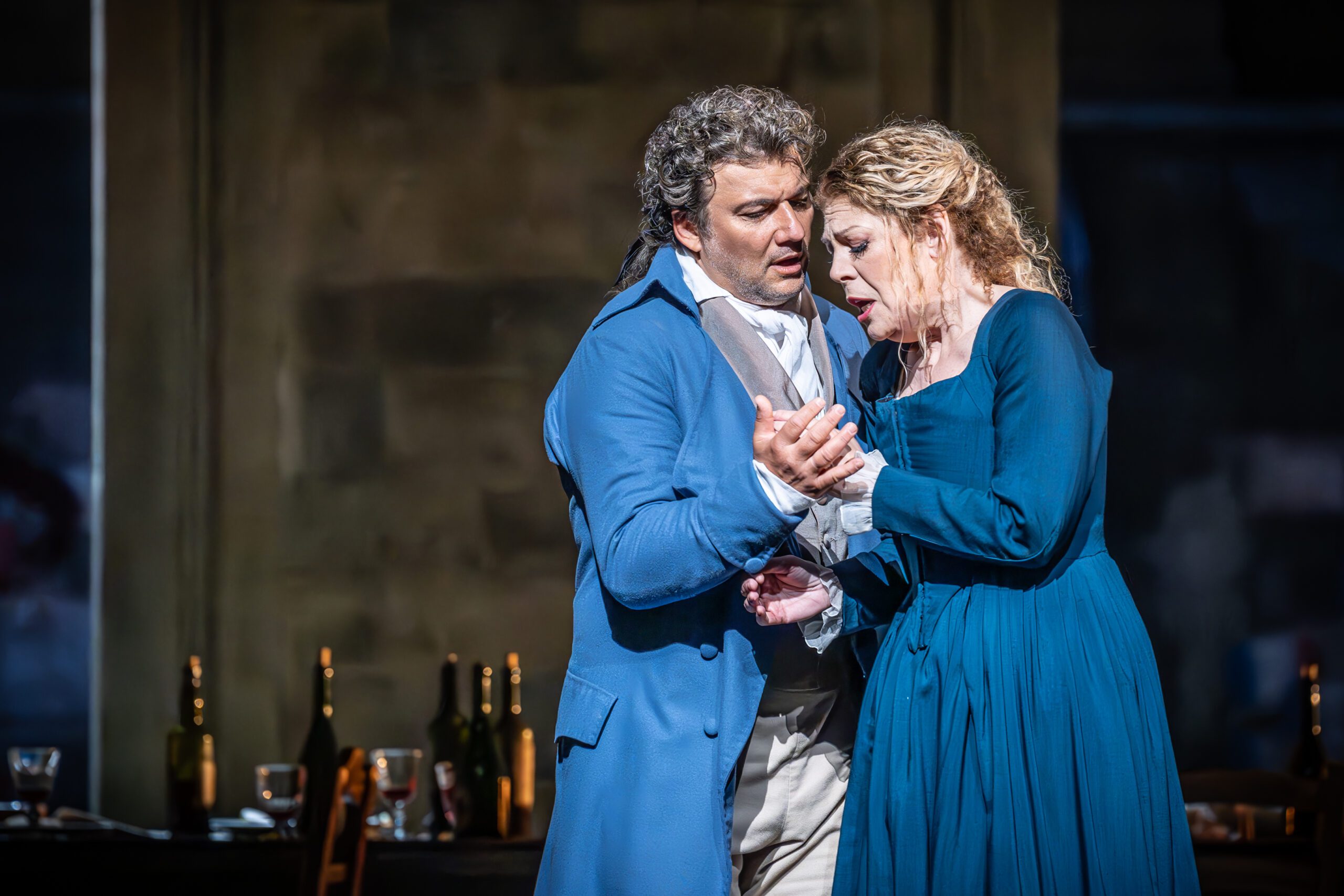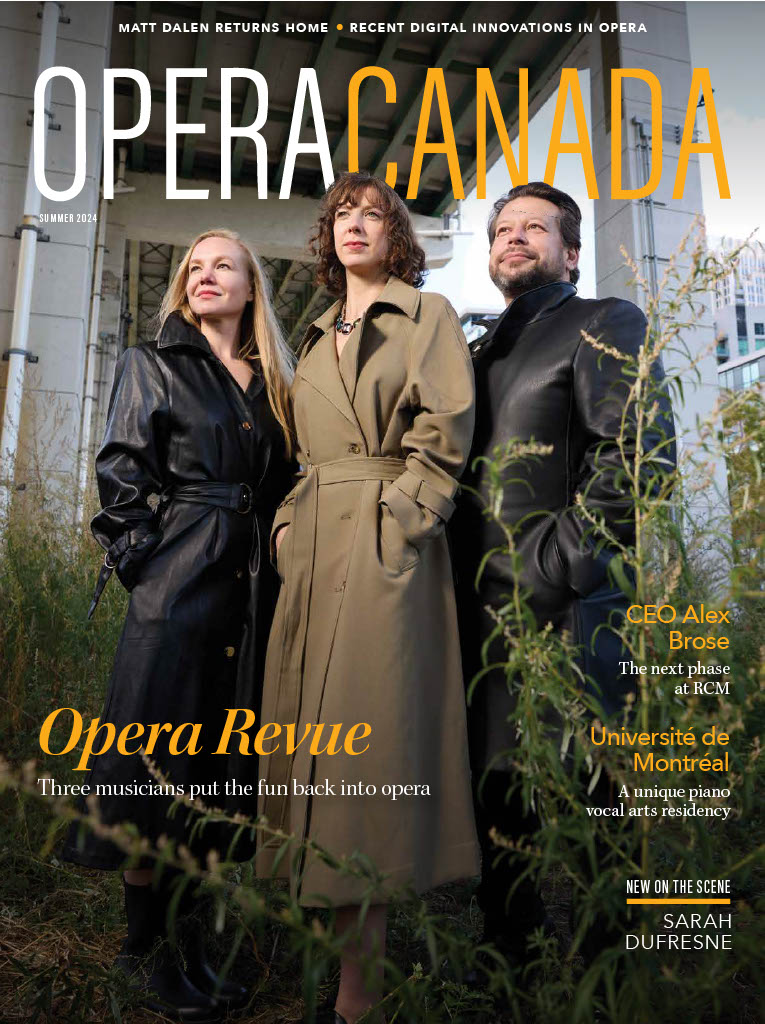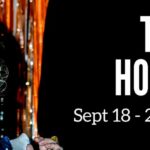With a stellar cast, The Royal Opera House’s production of Andrea Chénier evokes both the passion and chaos of the French Revolution and the spirit of our times. As the gap between rich and poor becomes a chasm, oligarchs and populist monsters play with a vulnerable public, and poets are executed with impunity, the production captures both the ethos of 18th Century France as well as emotional and political truths that resonate in 2024, a time of brave new terrors.
Adding to the poignancy of the verismo opera in four acts by Umberto Giordano that recounts the life and death of the poet Andrea Chenier who was executed at the height of the Terror (mere days before Robespierre himself) is the fact that it marks Antonio Pappano’s final opera as the ROH’s long time music director.
The house was packed with fans in equal measure of both the leads Jonas Kaufmann (reprising his role from the 2015 debut of the current David McVicar production) and Sandra Radvanovsky (most recently seen as Medea in Toronto at the Canadian Opera Company in May) as well as Pappano. Rapt applause for both singers and orchestra greeted almost every aria. And fittingly as well….what’s not to love about this opera that celebrates the triumph of love over death?
From the production design (by Robert Jones– the winner of a Canadian Dora Mavor Moore award and a Drama-Logue award) and stunning costumes by Jenny Tiramani, to the tightly choreographed direction by revival director Thomas Guthrie and the soaring arias and superb orchestration, this was one for the books.
From the opening act, set in the Chateau Coigny where the Contessa (played brilliantly by the formidable Rosalind Plowright – also reprising her role from the 2019 revival) Guthrie’s skilled direction of the McVicar production allows for a fine balance between pathos and passion, never lingering too long at or overlooking the importance of a dramatic moment, but rather getting the pace just right.
When Gerard (played powerfully in the June 2nd production I took in by Mongolian baritone Amartuvshin Enkhbat) lets in a starving mob in the middle of an aristocratic gavotte, and later takes off his servant’s livery and leaves to join the Revolution, Plowright’s Contessa takes it all in stride; in a masterful portrayal of noblesse oblige and steely denial, she urges the orchestra to strike up the music and simply keeps on dancing.
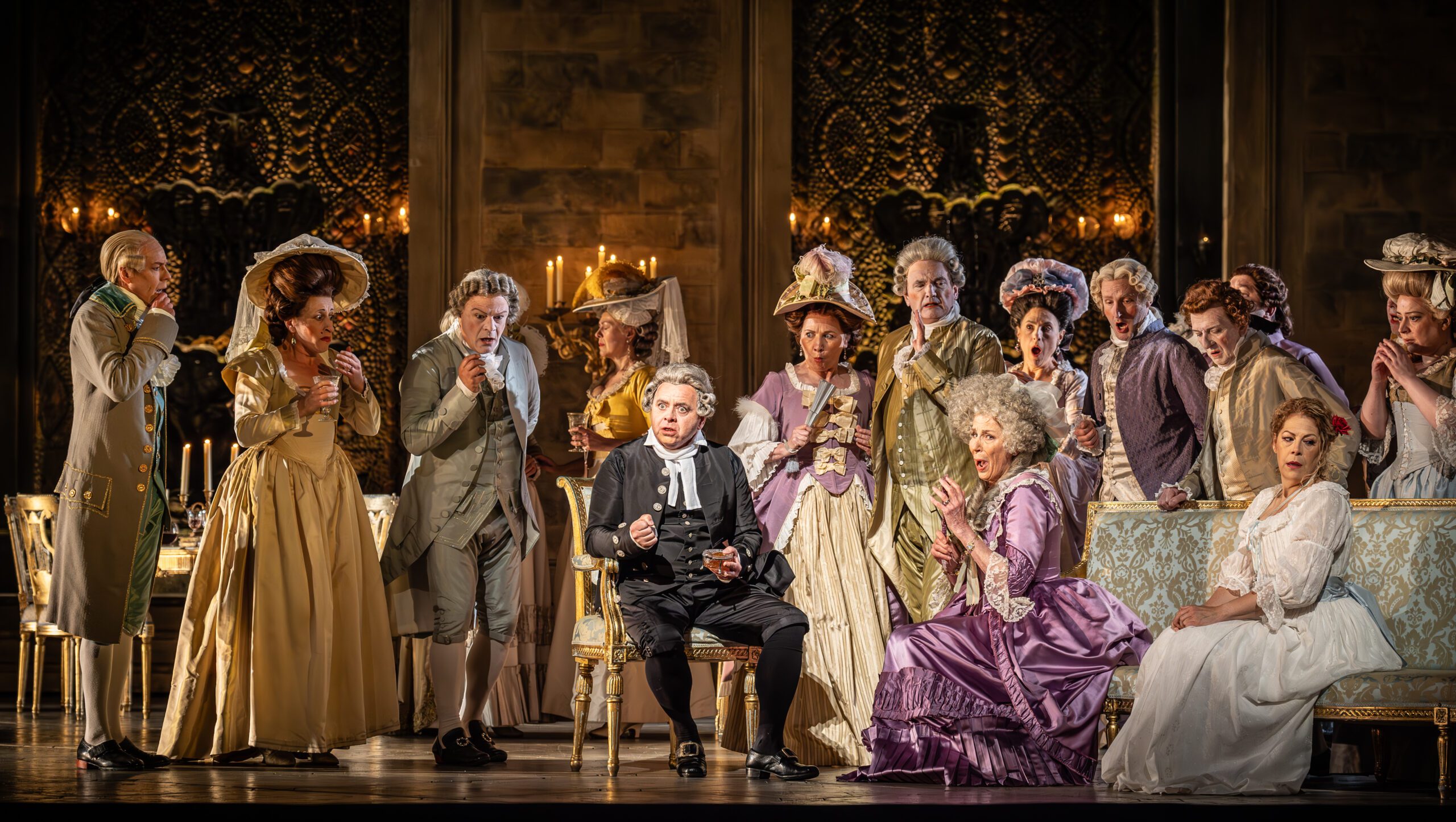
Photo Credit: Marc Brenner
In the second act set in the Café Hottot in 1794, a candlelit shrine to the Revolutionary martyr Marat observes the scene. Maddalena’s former servant turned Merveilleuse, Bersi – impressively portrayed by South African mezzo- soprano Katia Ledoux– is in turn watched by Jacobin spy the Incredible, (well played by Alexander Kravets as a kind of villainous civil servant methodically disposing of ‘enemies of the state’) intrigued by her attempts to catch the attention of Chenier – who has fallen out of favour for his critique of the Jacobins. The scene is orchestrated as a seamless tableau of watchers being watched, as the audience peers over from the edge of the fourth wall.
When Maddalena finally appears and reveals her true identity to Chenier, Radvanovsky’s lovely expressive soprano conveys both musicality and emotional depth as she reveals her character’s shift from spoiled daughter of the aristocracy to desperate survivor.
A third act highlight is the aria of Madelon – the old blind woman whose son died at the storming of the Bastille and grandson died in the battle of Valmy- as she offers her only remaining grandson to the Revolutionary cause. Here Elena Zilio, reprising her role from the 2019 revival, movingly evokes both the opera’s historic specificity as well as more contemporary wars, as does Radvanovsky’s Maddalena’s recounting of the terrible death of her mother the Contessa, butchered by the mob before her eyes.
Enkhbat brings passion and energy to his portrayal of a tormented Gerard, torn between his longing for Maddalena and his conscience, hyper aware of the hypocrisies of the Revolution. As he sang, ‘Ah, la Rivoluzione I figli suoi divora!’ (‘Ah the Revolution is devouring its own children!’) 21st century scenarios sprang to mind, as a banner bearing the Revolutionary slogan, ‘Citoyens, la Patrie est en danger!’ loomed large.
Kaufmann’s Chenier – strong throughout – shines in the trial scene as he demands to be heard before the mob turns against him. And in the final act, he is musically and dramatically dazzling as he brings home Chenier’s journey from poet to martyr, redeemed by the power of love.
This is opera at its finest.
Related Content ↘
Opera Canada depends on the generous contributions of its supporters to bring readers outstanding, in-depth coverage of opera in Canada and beyond. Please consider subscribing or donating today.
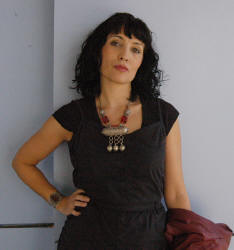
Hadani Ditmars has reviewed opera for the London Independent, the National Post and the Huffington Post. She is the author of Dancing in the No-Fly Zone, a critically acclaimed book that documented pre and post invasion culture in Iraq, and is at work on a new book using ancient sites as a narrative device to tell the story of contemporary culture in Iraq. She is developing a libretto based on her experiences in Iraq.
She has been writing about arts and culture internationally for three decades and her work has been published in the New York Times, The Guardian, The San Francisco Chronicle, Haaretz and the Globe and Mail and broadcast on CBC, BBC and RTE.

